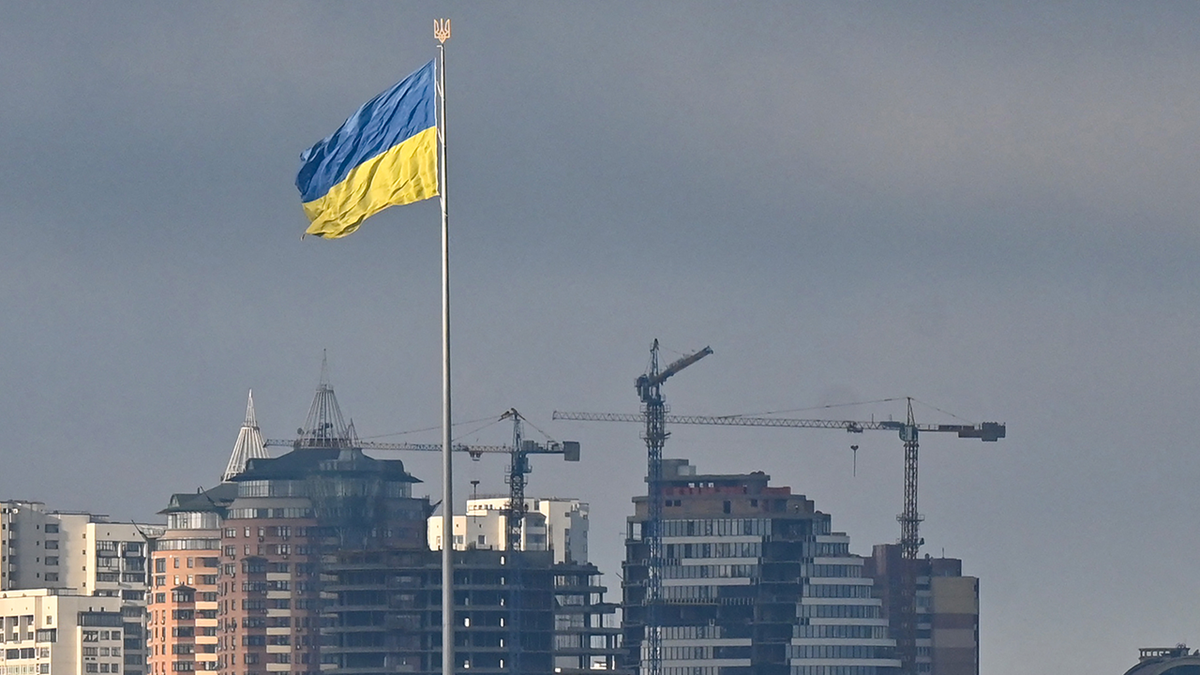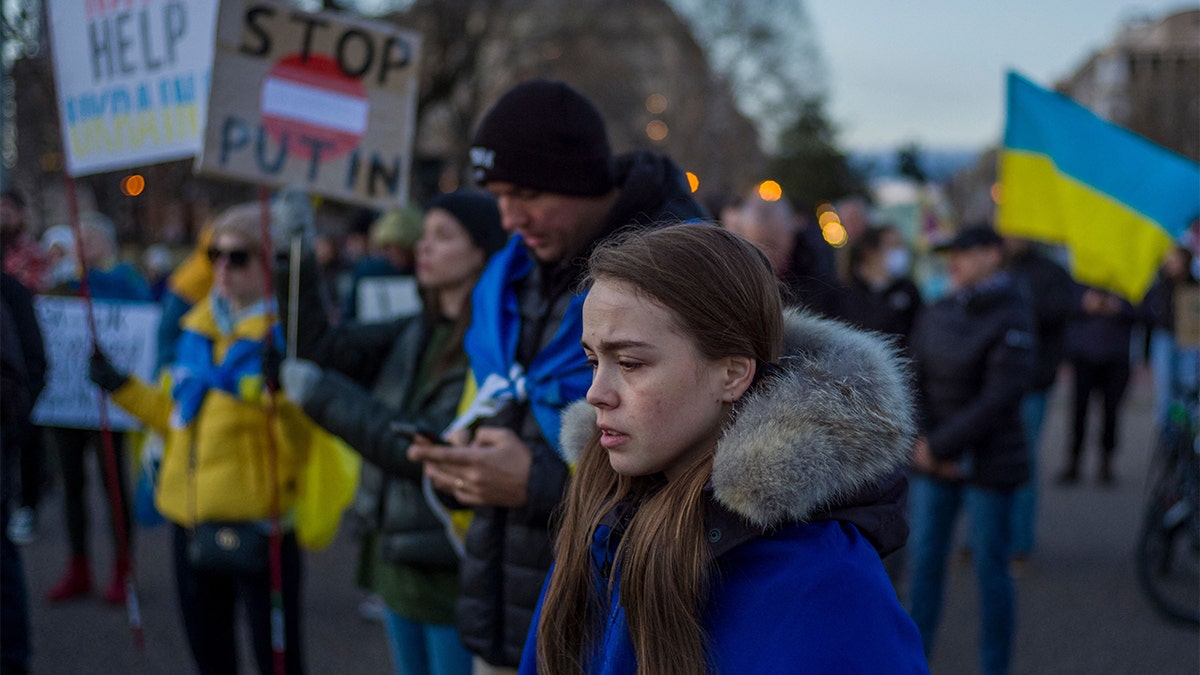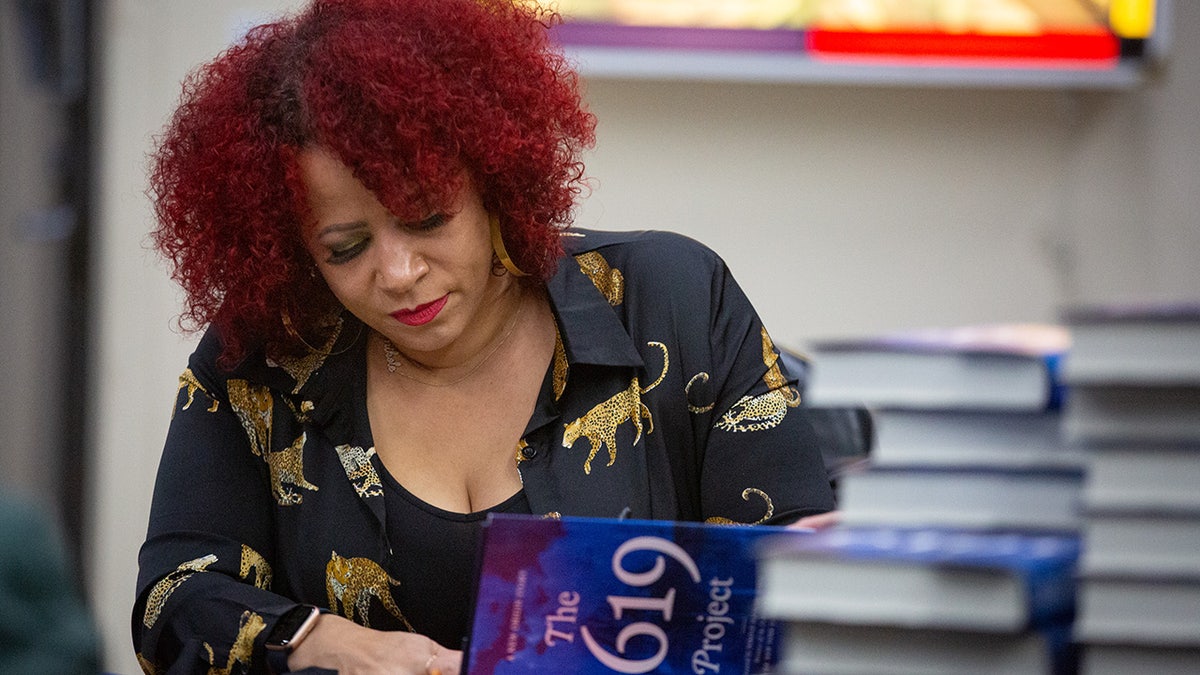Ukrainian army setting up road blocks, taking down street signs to confuse Russians soldiers: Trey Yingst
Fox News foreign correspondent provides the latest on the Russian invasion of Ukraine on 'Fox Report' live from Kyiv.
New York Times journalist Nikole Hannah-Jones offered a surprising take Sunday on the ongoing Russian invasion of Ukraine and its media coverage.
The 1619 Project author commented on a local writer’s description of "incidents of insidious racism" in the media, claiming that concern is only for "Europeans with blond hair and blue eyes."

Ukraine's biggest national flag flies in Kyiv on February 26, 2022. (GENYA SAVILOV/AFP via Getty Images)
Hannah-Jones agreed with the writer on the "racialized" analysis.
"Every journalist covering Ukraine should really, really look internally. This is why I say we should stop pretending we have objectivity and in instead acknowledge our biases so that we can report against them. Many of us see the racialized analysis and language," Hannah-Jones tweeted.
She also added that the "admissions of shock" for Ukraine suggest a racial bias due to a lack of attention for nonwhite nations.
"And honestly, these admissions of shock that this is happening in a European country are ahistorical and also serve to justify the lack of sympathy for other invasions, other occupations and other refugee crisis [sic] involving peoples not considered white," Hannah-Jones added.
When a Twitter user criticized her take as well as its timing, she responded, "That’s absolutely ridiculous. Journalists shouldn’t focus on improving their coverage in real time?"

A woman stands with other activists during a protest against Russian invasion of Ukraine during a rally at Lafayette Square, across from the White House, in Washington, DC, on Feb. 25, 2022. (Photo by MANDEL NGAN/AFP via Getty Images) (MANDEL NGAN/AFP via Getty Images)
She followed up with an additional tweet that it was "a geopolitical fiction to separate [Europe] from Asia" so that an invasion can be "a dog whistle to tell us we should care because they are like us."
Still, she insisted, "To be clear: We should care about Ukraine. But not because it is European, or the people appear white, or they are ‘civilized’ and not ‘impoverished.’ All people deserve to be free and to be welcomed when their countries are at war."

LOS ANGELES, CA - NOVEMBER 30: Pulitzer Prize-winning investigative journalist Nikole Hannah-Jones signs books for her supporters before taking the stage to discuss her new book, The 1619 Project: A New Origin Story, with the Los Angeles Times Executive Editor Kevin Merida at a LA Times book club event on Tuesday, Nov. 30, 2021 in Los Angeles, CA. (Jason Armond / Los Angeles Times via Getty Images) (Jason Armond / Los Angeles Times via Getty Images)
Hannah-Jones has frequently made controversial claims on her Twitter account, sometimes deleting them later. Her 1619 Project was also heavily criticized as a distorted and inaccurate depiction of history despite earning Hannah-Jones a Pulitzer Prize for her work.










































